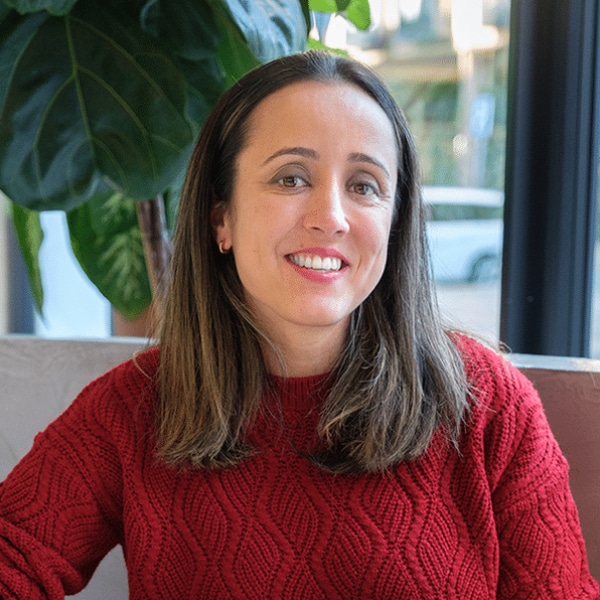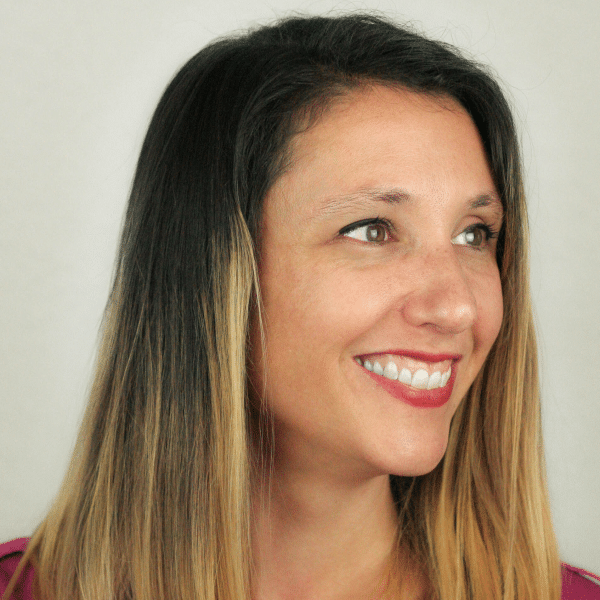AI Playground: Cursor
Aaron Grando
VP, Creative Innovation at Mod Op

“I give Cursor 5 out of 5 stars for people who know how to code, and about 2 out of 5 stars for everybody else.”
Aaron Grando, VP of Creative Innovation at Mod Op
Before introducing Aaron Grando to review the AI-powered coding assistant Cursor, Tessa Burg explores the key trends set to shape the future of AI in 2025.
From the explosion of new technologies to the rise of real-time personalization, Tessa lays out a roadmap for how businesses can strategically adopt AI. She also highlights the shift towards smaller, more senior teams and how collaboration will become critical for maximizing AI’s potential.
“I found Cursor to be really powerful and a great new way of working.”
Aaron Grando, VP of Creative Innovation at Mod Op, shares his hands-on experience with Cursor. Aaron explains how this powerful app streamlines workflows, enhances context, and even integrates non-coding tasks like notes and project insights.
Curious about how AI can make your team more productive and creative? This episode shares relatable examples to help you get started.
Highlights:
- Predictions for AI trends in 2025
- The importance of strategy and process in AI adoption
- Collaboration across teams to achieve measurable results
- The role of AI in saving time and enabling strategic thinking
- How AI tools like Cursor enhance developer workflows
- Practical insights on integrating AI tools with existing processes
- Challenges and opportunities for marketers and businesses
- The connection between AI innovation and customer experience
Watch the Live Recording
[00:00:00] Tessa Burg: Hello, and welcome to another episode of Leader Generation brought to you by Mod Op I’m your host Tessa Burg. And today we’re going to talk about some trends in AI for 2025. And do another review of a really powerful app cursor. It’s a coding assistant app as part of our AI playground series.
[00:00:24] Tessa Burg: So before we get into why marketers should even care about a coding assistant app, I wanted to address some of the sentiment and feelings that we are hearing from our clients, uh, about AI and its impact on business today.
[00:00:37] Tessa Burg: I know there’s a lot of uncertainty. But I have some predictions, four predictions that we are very certain will come to fruition in 2025. And I wanted to lay out a really simple roadmap for getting the most value and benefit out of the time and the investments that you’re spending in testing and adopting and receiving training on AI in your business today.
[00:01:00] Tessa Burg: So first, we know that the explosion of tech and the investment in AI is going to continue to accelerate. This is great if you’ve had a lot of good experiences with AI and you are excited to see what else, what other superpowers you can unlock. This might, for most though, feel very overwhelming. There are over 64, 000 different AI apps and technologies on the market today.
[00:01:24] Tessa Burg: That eclipses the number of marketing technologies on the market, which is over 14, 000, all of which also will have AI in them, but instead of focusing on how many options there are and how much tech and are you using the right model and what should you be using this versus that go to where, you know, as marketers, we are experts in strategy.
[00:01:45] Tessa Burg: We are experts in our customers and how to best serve them. And where you want to center is first and your company’s vision, how you differentiate and what are the big challenges? How do you see serving your customers differently in ways that wow, in ways that really elevate and bring your brand to life and back out from there?
[00:02:05] Tessa Burg: What have you always wanted to do to make that happen? In trend two, we know that hyper personalization or personalization in general. Real-time decision-making will be possible with AI in 2025. It actually has always been possible. But for a lot of the reasons that AI adoption is slow is we didn’t go in the right orders as marketers were results oriented, and every day we’re under pressure. to deliver more sales, to increase conversion rate, to make sure that we’re addressing customer concerns and moving cases or moving orders or getting the experience our customers expect at the time they expect it. And when you’re so focused on delivery day in and day out, it’s really hard to step back and map out the process first and then look at the apps that make the most sense.
[00:02:56] Tessa Burg: This brings us to prediction number three. With AI on the table, teams will become smaller and more senior. And to unlock that true value and to get that real time personalization into place, collaboration will be necessary. So really think about not needing to solve these challenges on your own. And Getting that feedback from your cohorts in IT in engineering and in product and how you can have some shared goals and some shared success metrics so that you’re able to measure the true ROI and the efficiency gains from taking not just one app, but apps that are connected under a single experience in stringing those together to deliver on a more efficient flow.
[00:03:51] Tessa Burg: This brings us to our last prediction. That requires strategy. And as we begin to use apps to save time, if you heard our first episode in the AI Playground, episode 108, Both Alyssa and Jonathan, who reviewed Copilot and NotebookLM cited that while these apps were doing things that they could do or, or have done in their professions, the real magic was that it was doing it so much faster and providing insights and perspective that helped propel their creative thinking farther.
[00:04:28] Tessa Burg: And that’s the way me. That we begin to open up time to be more strategic to learn skills that are necessary to get the most value out of apps and to collaborate. So those four predictions are one, the explosion of tech and AI is going to continue. You’re going to see a lot more investment, a lot more apps.
[00:04:46] Tessa Burg: Two, real-time personalization, real-time decision-making, automation will be a reality in 2025. So this really forces three. Are you elevating up to it as a strategic thinker? Are you starting with the problem in the process and then selecting the tech underneath in order to get true measurable value and scale?
[00:05:08] Tessa Burg: And that brings us to the fourth reality that as you use apps to save time, as you use apps to do things that you haven’t been able to do, and then elevate up to that strategic thinking. Teams will become smaller, they will become more strategic, they will become more cross-functional. Now, that might sound like jobs are going away, or roles are going away.
[00:05:30] Tessa Burg: And I think the reality is that could be true, but if we truly elevate up to delivering experiences in ways that don’t exist today, if we start to imagine what will be possible in the ways we connect when things like Google glasses are a reality or the different ways we can become a part of smaller, more niche communities where our clients already are, then I think there’s going to be more of a shift.
[00:05:56] Tessa Burg: In what we do, um, rather than, you know, jobs, just full scale going away. That is my optimistic view. But as marketers, we’ve always been inventive. We’ve always been creative and thinking and reimagining delivery is what we do best. So with that, speaking of saving time and becoming more collaborative, we have Aaron Grando reviewing the Code Assistant app Cursor.
[00:06:22] Tessa Burg: You’ll hear how not only does it help him improve as a developer, but it also helps with delivering more context. And that’s where we have this connection to marketing. I’m sure you’ve all had the problem where you’ve put a request into a developer or the engineering department and it doesn’t come back quite as you expected it.
[00:06:43] Tessa Burg: What cursor does is also allow the intake of notes. So we could see where We can co collaborate with engineers to make sure that we’re a part of validating that the features and the automations we’re developing a line with the experiences and values that we want to deliver to our customers.
[00:07:00] Tessa Burg: And Aaron is really unique in that as the VP of innovation for creative, he is both a strategic thinker and a product designer as well as a developer. So enjoy his review of cursor and visit modop.Com for more reviews on apps that we’ve been testing and playing with to date. And until then, talk to you next time.
[00:07:22] Aaron Grando: Hi, I’m Aaron Grando and I’m VP of Creative Innovation at Mod Op, and I’ve been testing out Cursor, which is an AI coding app. And the problem that we’re trying to solve with Cursor is that we need to code really quickly. I work on the innovation team, and the faster that I can write something up, test it out, and then iterate on it means the faster that we can iterate and the faster that we can innovate on new products and tools that.
[00:07:52] Aaron Grando: Make the work that we do better So what are some of the things that cursor does that helps that happen? It’s got two main killer features in my opinion. The first one is When you’re prompting it, it’ll automatically generate a context window based on your entire code base So it’ll search your code base for what it thinks is relevant topics to your prompt and include files That reference what you’re talking about in your prompt And that just makes the code that it generates that much better.
[00:08:23] Aaron Grando: Um, and secondly, it is really good at generating, um, revisions to your code in a way that are really easy for you to process. So, um, like it can make big feature changes, um, and it can do small, like single line changes. Both of them are really easy to accept, deny, or edit as you’re putting the code into place.
[00:08:45] Aaron Grando: So, I really like how it handles that. I have tried another app that is pretty similar, uh, GitHub Copilot in VS Code. Um, it was nice. I thought it was a little bit more limited in how it tried to help you in the same way as that cursor is trying to help you. Um, how have I worked cursor into my workflow?
[00:09:08] Aaron Grando: Um, for one, it’s become my main IDE. Uh, I’ve been using it for about two months now. Um, and I use it most days as I’m coding. Um, but I’m actually most excited about how I’ve been using it for non code work. Um, in all of my projects, code, not code, I’ll create a new folder that I’m just calling context. Um, and I’ll save just like writings, notes, thoughts, just jots down about what I’m working on.
[00:09:38] Aaron Grando: And then as I’m writing more notes or writing code, Cursor will, like it does when it’s referring to other pieces in your code base, Grab that context and integrate it into its generation. So it makes the notes that I write, the code that I write that much more self informed about what I’m trying to achieve.
[00:09:57] Aaron Grando: So I found that to be really powerful and a really great new way of working. Um, and it’s really cool. Um, and on a scale of one to five, what would I give cursor for people that are already familiar with how apps should fit together, I give it a five out of five. Um, it’s not going to build you an app from complete scratch in a entirely responsible way.
[00:10:23] Aaron Grando: Um, you still definitely need to understand how things should work, where there are pitfalls, what are the things to watch out for. Um, but it is really good at helping you add to an app, helping you debug an app, helping you add a feature here and there. Um, helping you learn, uh, how to translate something from, like, language A to language B.
[00:10:44] Aaron Grando: Um, it’s really useful, so I give it 5 out of 5 stars for people who know how to code, and probably about 2. 5 stars for everybody else. Uh, it’s a cool product, um, it’s worth checking out with a free subscription. If you’re just taking notes, try it that way, but it’s a code editor, so you have to go in with your expectations set there.
[00:11:04] Aaron Grando: It’s not the prettiest thing to work with. Um, so yeah, I, uh, I say highly recommended for coders, and everybody else, give it a shot.
[00:11:12] Tessa Burg: That concludes this week’s episode. We hope you enjoy the latest from our AI playground. If you have any ideas for apps that we should review, email us at podcast at ModOp. com that’s P O D C A S T at ModOp, M O D O P dot com. Until next time, have a great week.
Aaron Grando
VP, Creative Innovation at Mod Op

Aaron Grando, VP, Creative Innovation on Mod Op’s Innovation team, is a seasoned technologist with over 15 years of experience at creative agencies. With a background in strategy, design, engineering, and marketing, Aaron has worked extensively in industries like media, entertainment, gaming, food & beverage, fashion, and technology. At Mod Op, Aaron leads efforts to integrate AI into creative processes, creating tools that connect creatives and clients with insights, spark ideas, and enable new brand experiences. Projects include collaborations with companies like NBCUniversal, Bethesda Softworks, Under Armour, Planet Fitness, Dietz & Watson, and more, focusing on infusing creative strategies with innovative technology to create cutting-edge brand experiences.





